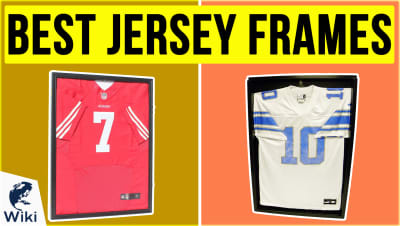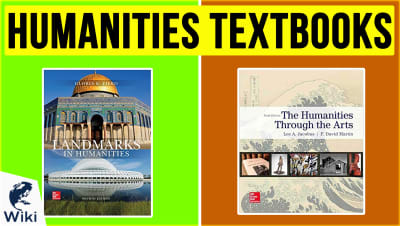10 Incisive Essay Collections That Don't Pull Any Punches
There are many types of essay collections out there; some use humor to explore their topics while others are more literary in nature. The best writers use their essays to convey something true from a unique angle, whether they're writing about their hometown or the legacy of racism in America. The ten collections listed here tackle a variety of topics head-on without sugar-coating the truth. This video was made with Ezvid Wikimaker.
Honest & Well-Written Essay Collections: Our 10 Picks
5 Reasons to Read Essays
- To learn new things
- For entertainment
- To challenge your beliefs
- So you can gain a new perspective
- To discover amazing writers
Things Every Writer Should Have
If reading these essays inspires you to write something of your own, here are a few things you should put on your shopping list:
- A journal where you can keep track of your thoughts & ideas
- Some coffee or tea to get you through late-night bursts of inspiration
- A comfortable keyboard so you don't end up with carpal-tunnel syndrome
- A laptop that's easy to bring along to your local coffee shop
- A height-adjustable desk to help you avoid hurting your lower back
- A foam roller for when you do get lower back pain
The Power of Reading
In Depth
Encompassing everything from philosophical treatises to irreverent memoirs, the titles included on this list feature essays for scholars and casual readers alike. Though they are quite different in many ways, these works all share a sense of unvarnished honesty. In no particular order, here are ten penetrating essay collections that don't hold back on their insights.
Showing up at #1 is "The Deep Zoo" by Rikki Ducornet. Esteemed postmodernist poet Ducornet's dense and eclectic essays ruminate on a plethora of topics relating to art, literature, nature, and spirituality. In her wide-ranging scope of preoccupations, she weaves effortlessly between paying homage to writers such as Lewis Carroll and the Marquis de Sade to analyzing the linguistic nuances of ancient languages. Her concept of the "deep zoo," the metaphorical place from which writers find inspiration, forms the core of her kaleidoscopic musings.
For #2 we get "New Orleans, Mon Amour" by Andrei Codrescu. Drawing from twenty years of writing, N.P.R. commentator and essayist Codrescu chronicles his journey from Romanian refugee to adopted son of decadent, bohemian New Orleans. Beginning as an expat newcomer to the city, he relates how he eventually became sucked into the allure of its myriad pleasures, from banana trees and coffee beans to Mardi Gras. Going beyond the things he admires about the city, Codrescu also highlights the corruption and natural disasters that make the Big Easy a troubled paradise.
Going beyond the things he admires about the city, Codrescu also highlights the corruption and natural disasters that make the Big Easy a troubled paradise.
Coming in at #3 is "You Can't Drink All Day If You Don't Start in the Morning" by Celia Rivenbark. The hysterical essays included in Rivenbark's Southern-fried book sprint liberally across a host of idiosyncratic subjects. From Jesus action figures to Clay Aiken and Miss North Carolina, there's no facet of American Southern culture Rivenbark won't approach with humor and more than a little sass. As an additional enticement, she also throws in some recipes for tasty homemade meals and treats throughout the chapters.
For #4 we find "MFA vs. NYC," edited by Chad Harbach. Taking off from Harbach's own thesis that the skyrocketing popularity of MFA writing programs has created a rift in American literary culture, this collection ponders the changing state of modern publishing. With their focus on New York City, the featured authors, editors, agents, and students weigh in on the advantages and disadvantages of getting an advanced degree, and whether professional writers need to live in the city in order to succeed. Academics such as Fredric Jameson and Elif Batuman contribute further scholarly wisdom to the debate.
At #5 is "Why Is My Mother Getting a Tattoo?" by Jancee Dunn. With both levity and wistfulness, memoirist and rock journalist Dunn explores her and her parents' attitudes towards getting older. She's particularly fascinated by the discrepancy between age and inner-experience, how one can be married with children and yet continue to feel like a kid. Threading this line of inquiry through whimsical episodes from her recent family life, Dunn hits on poignant insights that will have readers nodding in recognition.
She's particularly fascinated by the discrepancy between age and inner-experience, how one can be married with children and yet continue to feel like a kid.
For #6 we have "Notes from No Man's Land" by Eula Biss. In this multiple award-winning book, scholar Biss conducts an incisive and candid analysis of the legacy of American racism. Building from her own experiences living, working, and teaching in African-American communities, she spins a far-reaching discourse on the history and politics of race relations that travels from ancient Babylon to the Jim Crow south and beyond. Biss also highlights famous figures such as James Baldwin and Joan Didion, bringing their views to bear on her sobering but hopeful outlook.
Arriving at #7 is "Dave Hill Doesn't Live Here Anymore" by Dave Hill. The titular musician and stand-up comedian employs his hallmark nonchalance and acerbic wit as he relates his evolving relationship with his recently widowed dad. From living with his parents in Cleveland as a hapless twenty-something to eking out a ramshackle existence in New York City, Hill wryly details the events that have led to his belated maturation. At the center of it all is his relationship with his father, whose move to a retirement home reinvigorates their bond in moving and uniquely funny ways.
For #8 we get "Blank" by M. NourbeSe Philip. Through complex meditations on philosophy, art, and politics, preeminent Canadian author Philip considers how the elements of history and culture that are effaced or repressed can return to our perceptions. Interrogating systems of capitalist power and their subordination of black identities, she poses challenging questions about living in the global present. Far from assuming a resigned posture, Philip uses her language to make the erasures she laments feel present and palpable. Along with new work, this volume features previously out-of-print essays.
Interrogating systems of capitalist power and their subordination of black identities, she poses challenging questions about living in the global present.
Landing at #9 is "The Romance of Elsewhere" by Lynn Freed. A South African expat who's lived in the United States for decades, academic and novelist Freed has long wrestled with questions of home and identity. In this collection, she muses on her eternal dilemma of belonging, from her experiences as an exchange student in New York to a hasty marriage that left her feeling adrift. With both humor and frankness, she illustrates how her nomadic lifestyle has led to her finding an ally in writing.
Finally, for #10 we come to "Me of Little Faith" by Lewis Black. The famously cantankerous author directs his attention and his bile at organized religion in his witheringly funny essays. Informed by his secular Jewish upbringing in the 1950s and his increasing skepticism toward all manner of religious rhetoric, Black interrogates the quirks and hypocrisies of dogma. Along the way, he has uproarious encounters with rabbis, psychics, and Mormons that bring new considerations to his iconoclastic worldview.



















